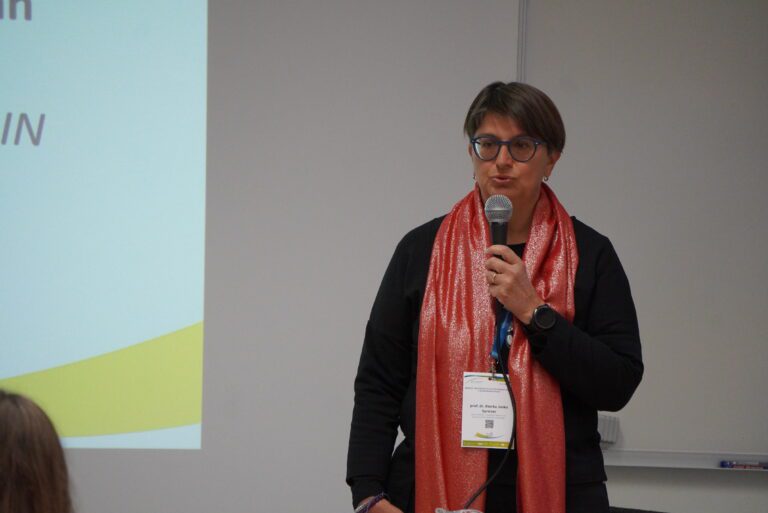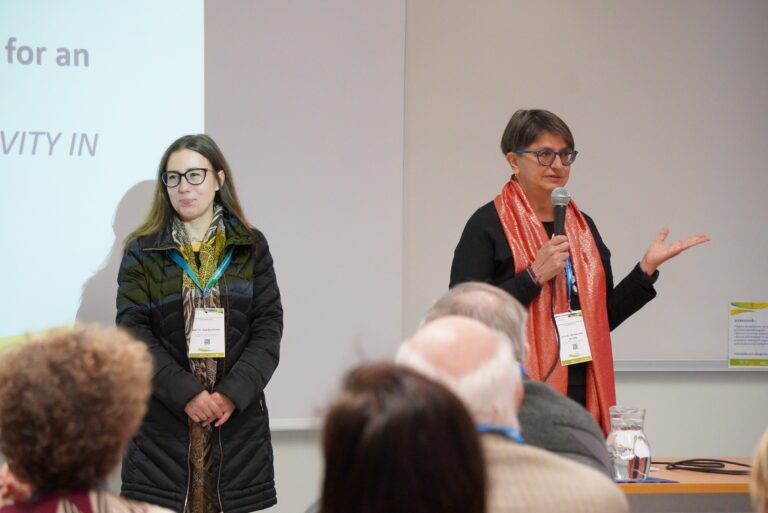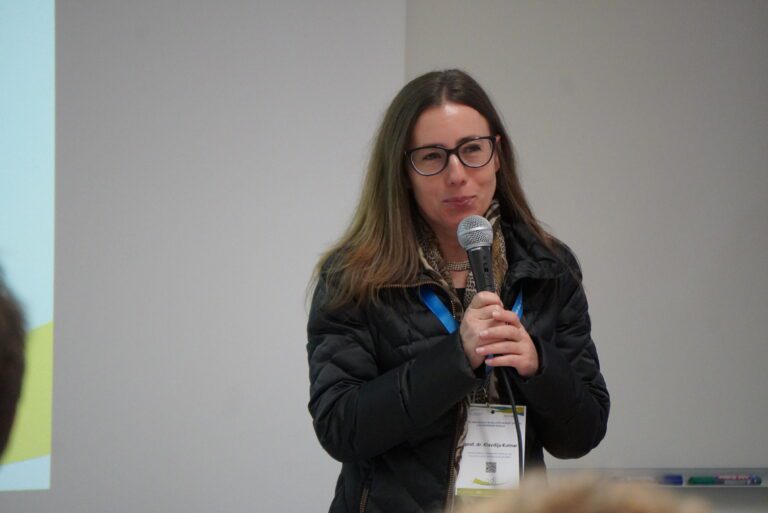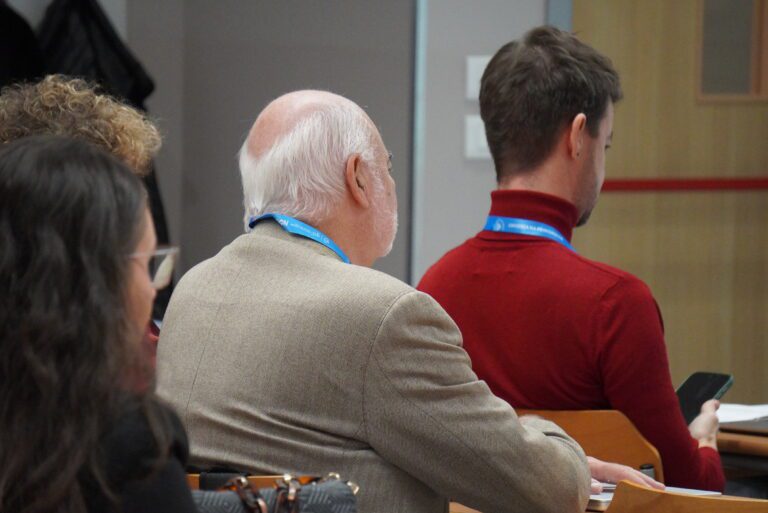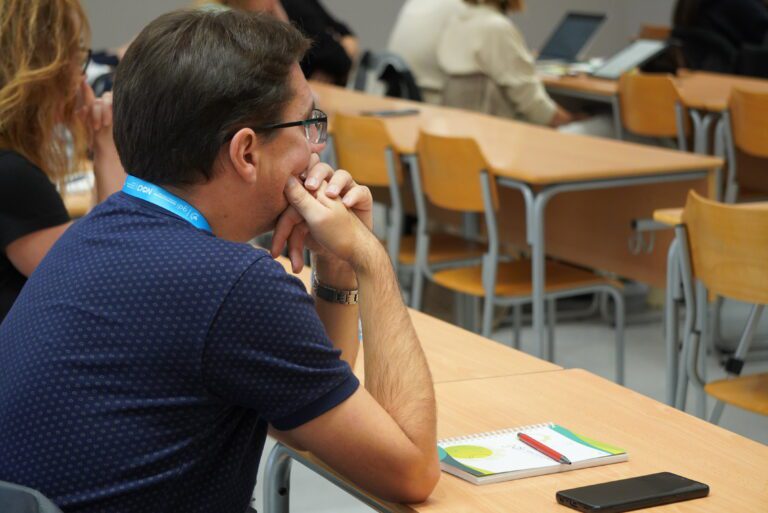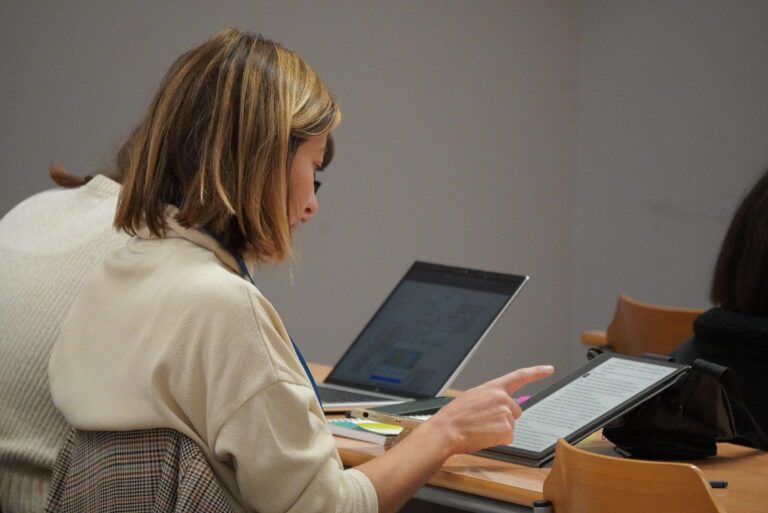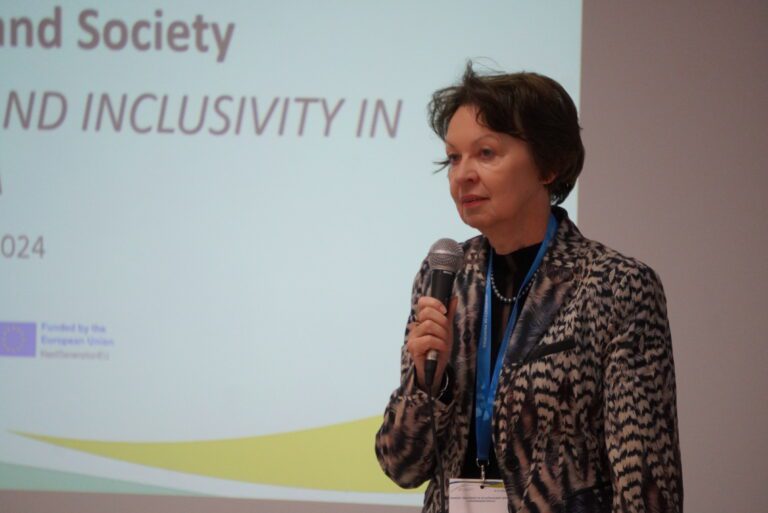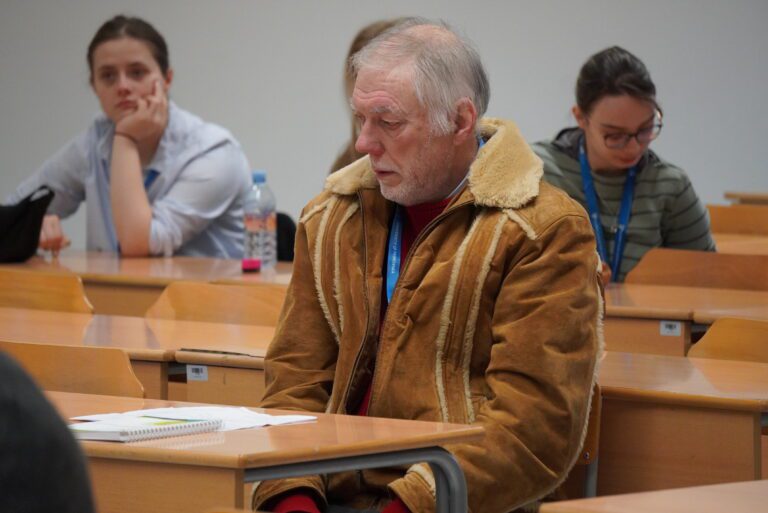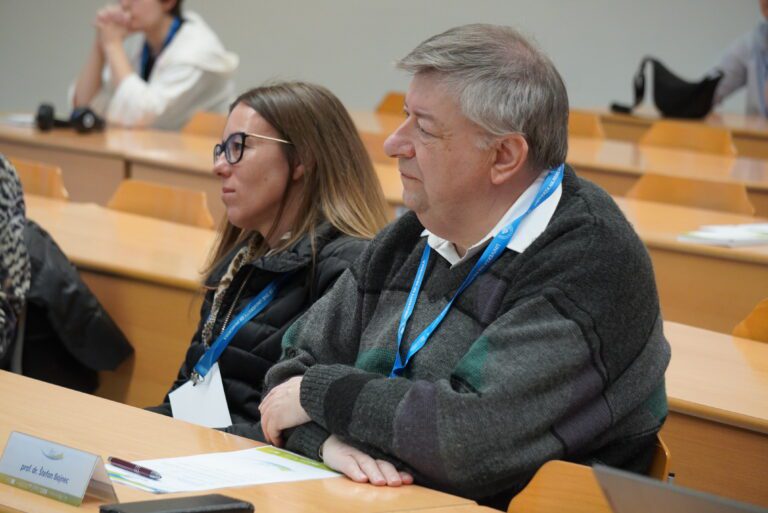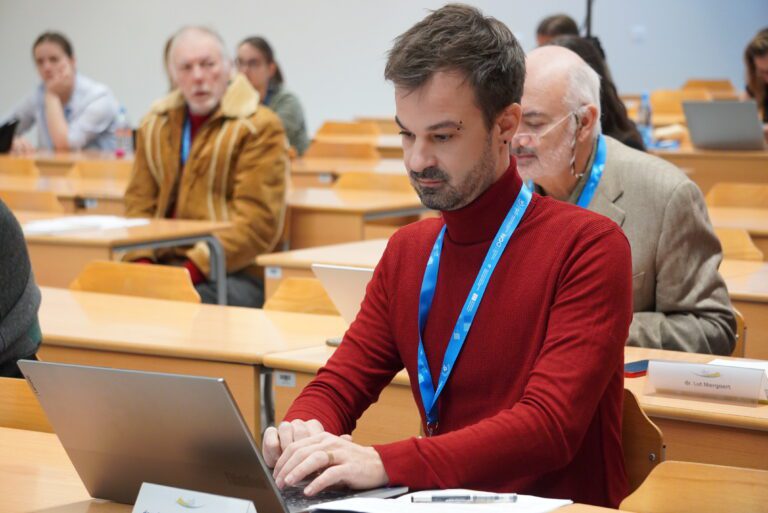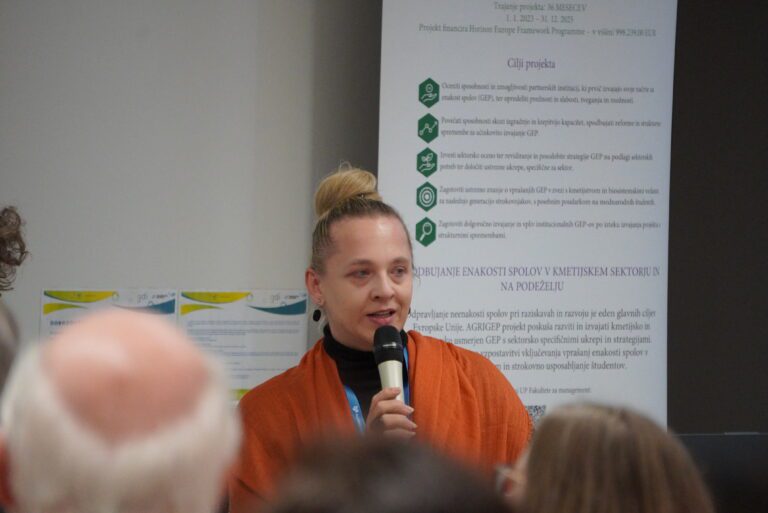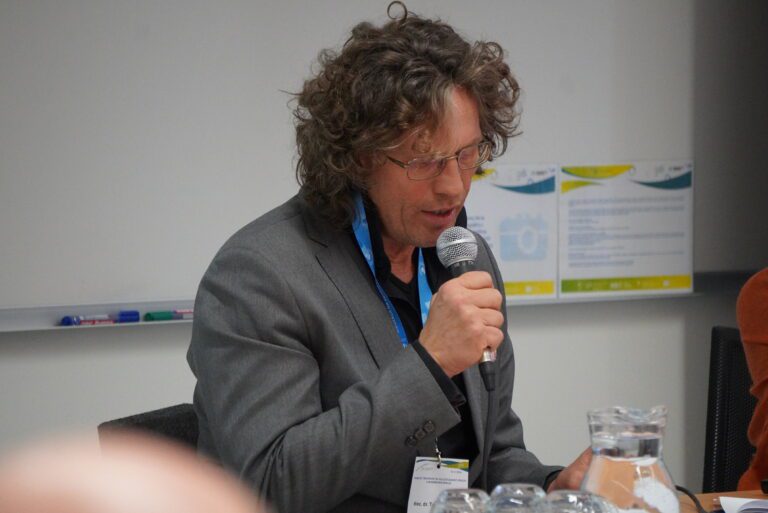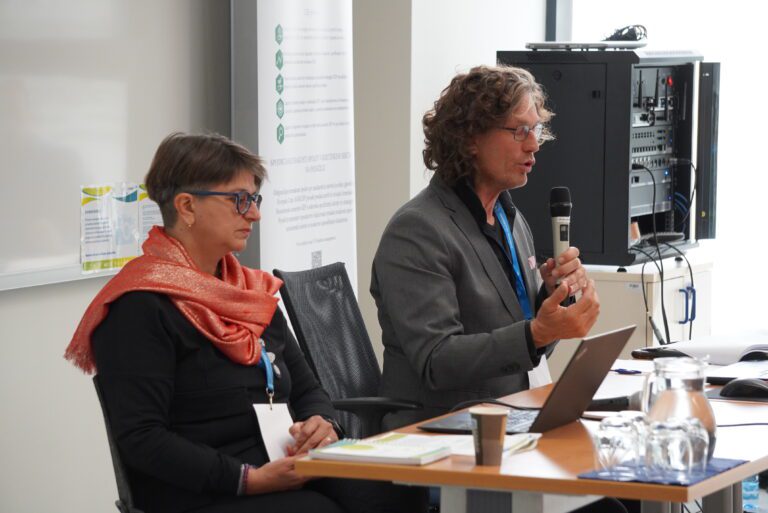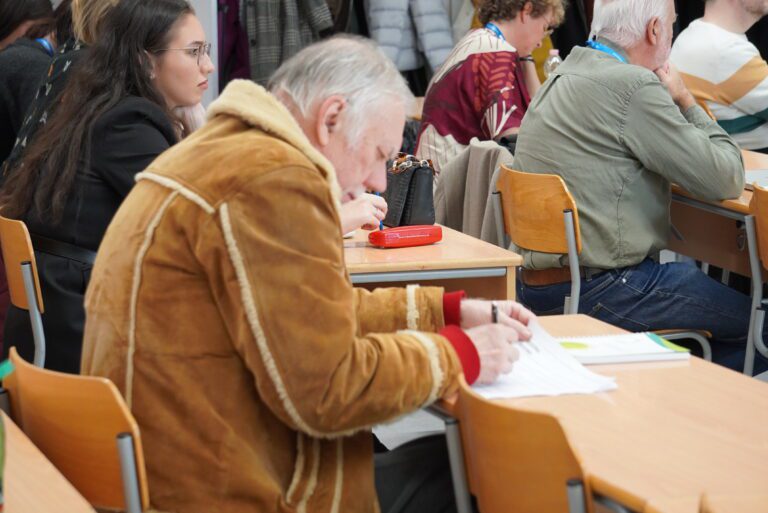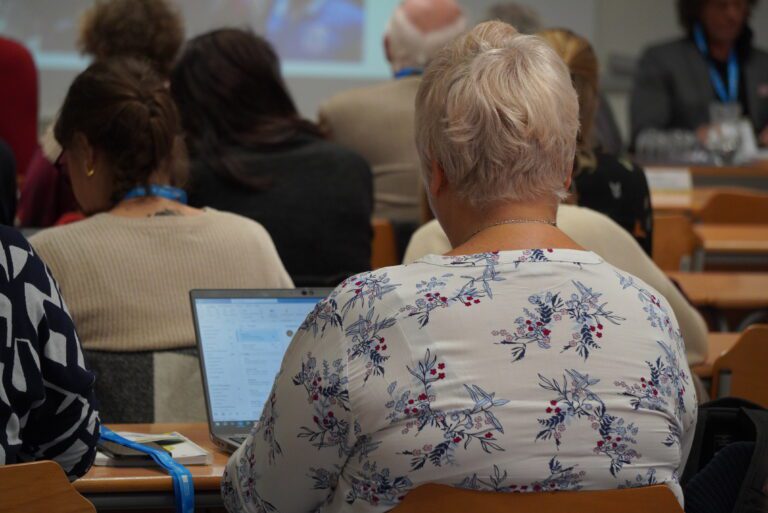The participants were introduced by the Rector of the University of Primorska, Prof. Dr. Klavdija Kutnar, and the dean of the Faculty of Humanities, Prof. Dr. Irena Lazar, who stressed the importance of mainstreaming gender equality issues in academia and the necessity of promoting interdisciplinary cooperation in the design and implementation of practices that ensure equality and justice for all individuals.
In the first session, Assist. Prof. Dr. Tadej Praprotnik moderated the first session, entitled “Genders at the Universities”. In her presentation, Prof. Dr. Vlado Kotnik explained that universities today are under pressure from ideological attacks on the academic field of gender studies, which is not only an attempt to undermine this discipline, but also the democratic social order, the integrity of academia, the autonomy of universities and gender equality policies. Afterwards, Assist. Prof. Dr. Marko Gavrilovski Tretjak, analyzed how microaggressions in the university environment related to class, gender identity and orientation affect LGBT+ students and proposed measures to improve inclusivity and equal opportunities at universities.
Ing. Jana Mazancova, PhD., Prof. Dr. Štefan Bojnec and Ing. Julianna Kobolak, PhD. stressed that the Gender Equality Plan (GEP) is key to promoting equality in academia, but its success depends on good involvement of all stakeholders, improved collaboration and the development of effective communication strategies. Prof. Dr. Alenka Janko Spreizer concluded the first session of the panel by highlighting the shift in gender studies, which now includes feminist approaches by Roma scholars, with a particular focus on research on women and LGBT+ communities in largely patriarchal Roma societies.
This was followed by a section on Genders in everyday life. Assist. Prof. Dr. Irena Weber explored how geographical and gender differences influence identity and belonging in the context of travel. Her analysis focused on how intersectional narratives shape power relations and influence social differences in travel encounters that are not neutral but historically conditioned. Sandi Horvat, Mag. Cult. Managm, then highlighted the fact that Roma communities in Slovenia remain among the most marginalized, despite the large financial investments dedicated to their challenges. He highlighted the lack of content in the education system to teach future professionals about Roma culture, history and language. Assist. Prof. Dr. Tadej Praprotnik presented inequalities in gender and sexual identity in the context of the development of artificial intelligence and algorithms that potentially automate existing inequalities, reproduce binarism and sexism, and create invisibility of diverse life practices and identities.
During the panel, Prof. Dr. Štefan Bojnec and Assoc. Prof. Dr. Patricia Blatnik discussed the dangers of fake news and misinformation, which have a significant impact on shaping public opinion on gender equality. Next, Dr. Lut Mergaert and Ms. Panagiota Polykarpou presented a model of influencing factors for achieving sustainable gender equality in research and higher education settings, which highlights the need for structural changes within institutions.
In the third session, Gender in Institutions, Dr. Maxime Forest introduced the participants with a presentation on the RESET project, which aims to reframe the notion of scientific excellence by questioning academic merit criteria while addressing gender and other overlapping biases. Next, Prof. Dr. Katalin Tardos, Dr. Enikő Virágh and Dr. Veronika Paksi presented an analysis of the formal compliance of the Gender Equality Plans (GEPs) with the European guidelines in the CEE countries, with a particular focus on STIM and KBZ, and identified gaps in the inclusion of sexual violence and issues specific to these disciplines.
At the end of the third session, Ing. Jana Mazancova, PdD., Prof. Dr Štefan Bojnec and Ing. Julianna Kobolak, PhD., highlighted the importance of the AGRIGEP project and the cooperation between universities in assessing the implementation of the Gender Equality Plans (GEPs) in the EU, with a focus on agriculture and life sciences, where improving gender representation and addressing specific challenges for young women farmers and researchers is urgent.
Proceedings in PDF format is available HERE.
